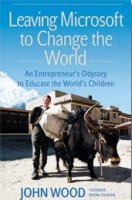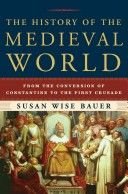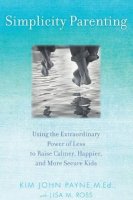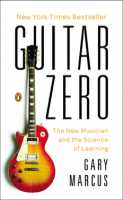 Hannah Coulter by Wendell Berry; audiobook published by christianaudio Fiction and narrated by Susan Denaker
Hannah Coulter by Wendell Berry; audiobook published by christianaudio Fiction and narrated by Susan Denaker
With Hannah Coulter, Wendell Berry has half made me want to live in Kentucky, which—all my Kentucky ancestors notwithstanding—was not even on my places-to-visit list. Susan Denaker doesn't so much narrate the book as become Hannah Coulter, telling the story of the people of rural Kentucky, who "keep on living" through the sorrows and changes brought by the 20th century. I found it spell-binding.
Denaker's skill, I think, helps save Berry from the hubris of writing a first-person narrative as a woman. He mostly succeeds, though there are places—most obvious when Hannah is talking about her children, or sex—when the point-of-view comes across more like a man trying to think like a woman and not quite getting it.
There is beauty here, and sorrow, and strength, along with places where I wished I could argue with Hannah: it might be a good choice for a book club, because there are several interesting discussion points.
I'd heard about Wendell Berry, but this was for me the first of his novels. There are several more about the fictional town of Port William, Kentucky that will probably be worth reading eventually.
Most of those who know me also know that I don’t like the government being involved in our health care, for too many reasons than I can go into now. More than once I’ve asked, “Do you really want to trust your health to the same folks who are mangling public education?”
Important note: I support the public school system, much as I find fault with it. There are many teachers among our family and friends. Our own children attended the local schools for a number of years. We pay school taxes, and have voted in favor of most requested tax increases, including last year’s. Everyone in the family has put countless hours into (public) school volunteer work.
Another important note: I agree that our health care system is in a big mess, and big messes invite government interference whether we like it or not. Personal experience of family and friends has shown me that public health care can work very well (France, Switzerland) and very badly (UK, Canada). (I know there are readers of this blog who are happy with Canada’s health care, but I’m going by the experiences of those I know personally, which, alas, are negative.) I don’t like the way in which our government is approaching health care reform, but that’s not the point here.
The point is consistency.
In the battle over health care, the faction I will loosely designate as “pro-government-social-program” (PSGP) wins for consistency: The same people who are pushing national health insurance are ardent advocates of public education. Viewing education as a fundamental, essential right of every child, they make it not only available but compulsory, and not only for the poor but for everyone, and expect everyone to participate. They frequently oppose anything (private schools, home education, vouchers) that would allow students to opt out of monopoly government schooling.
Having concluded that the cost of a (possibly large) uneducated segment of the population is greater than the cost of providing “free” education to all, they are consistent in applying the same logic to health care.
I, on the other hand, am not consistent, and neither, it seems, are many with better conservative credentials than mine. How can I support public education for all and not health care? Why is it considered acceptable, even admirable, for everyone—including the rich—to take government assistance in the form of public education, but lower-class, even shameful to be on Medicaid, accept Food Stamps, or live in public housing? What makes education so much more important than health care, food, or housing?
And maybe the PGSP’s are not as consistent as I thought, because I don’t see them pushing for compulsory soup-kitchen and housing project attendance.
Although … when our kids were in school, the school breakfast/lunch program, which served a useful purpose for poor children who otherwise would not eat, was pushed on everyone. It wasn’t exactly mandatory, but the schools used plenty of promotions and advertisers’ tricks to get children to pressure their parents to send money for their lunches rather than pack them better food from home. In the case of breakfast, they actually kept the other students trapped on the school bus until the breakfast-eaters were finished. So who knows what's next in the minds of the PSGP's?
I don’t know where we’re going and what we’re in for with all this, and I don’t know how I’m going to rethink my attitude in regard to public education and/or health care. But it certainly was a revelation to discover my own inconsistency.
Permalink | Read 2771 times | Comments (3)
Category Education: [first] [previous] [next] [newest] Politics: [first] [previous] [next] [newest] RETHINK: [first] [previous] [newest] Random Musings: [first] [previous] [next] [newest]
 Leaving Microsoft to Change the World: An Entrepreneur's Odyssey to Educate the World's Children by John Wood (Collins, 2006)
Leaving Microsoft to Change the World: An Entrepreneur's Odyssey to Educate the World's Children by John Wood (Collins, 2006)
I don't believe one gets closer to God simply by climbing physically higher, but there must be something special in the rarefied air of the Himalayas. Greg Mortenson returns from a climbing expedition inspired to build schools for isolated, impoverished communities in Central Asia; John Wood visits Nepal, then quits his high-level, very highly paid job at Microsoft, and begins building libraries for poor children all over the world.
The organization Wood founded, Room to Read, has earned the highest Charity Navigator rating of four stars. That it has grown explosively and yet responsibly is as much a tribute to Wood's business accumen as to his good heart. His years at Microsoft were preparation for his life's mission, though he didn't know it at the time.
As for the book, it's fascinating to read, as much for the insights into Microsoft as for the larger story. There is, perhaps, a bit too much of Wood himself. I find him, like Mortenson, to be rather too much full of himself. John Wood does not seem like a pleasant person to live or to work with. I was particularly bothered by his abrupt decision to drop all previous commitments to get on with his mission. He broke up with his girlfriend, whom he supposedly loved, and with whom he was apparently serious enough not only to live with but to follow when her job moved her to China. He made (as far as I could see) no attempt to work things out, to give her time to adjust to the radical idea and catch his vision—just "my way or the highway" (never mind that his way was the highway). He quit his job abruptly, leaving his boss and coworkers in the lurch, not giving his employer a reasonable amount of time to find a replacement and make a smooth transition—just "Goodbye."
But one does not have to be good in all aspects of life to accomplish good things, even great things. And it may be said that full-of-yourself, aggressive personalities are much better at getting certain types of things done. Wood (and Mortenson, recent problems notwithstanding) certainly have done and are doing amazing work. Leaving Microsoft to Change the World is a great testimony to how important to a community it is to include members with different strengths and different personalities, even personalities we dislike. Even more, it's a brilliant example of what can be accomplished—beginning with a single, inspired, hardworking, driven individual—when great vision and solid business sense come together.
Tomorrow, Joy will turn two years old. (I almost said, "will celebrate her second birthday," but with so many sick folks around here, I suspect the celebration will occur a bit later.)
Except for her size, you wouldn't guess her age. Trying to keep up with three older siblings is a powerful incentive to tackle projects beyond what most people expect of you. I've written before about her unusual physical coordination at fourteen months; she continues to excel in both large- and small-motor skills. She dresses herself completely with no difficulty, though it must be admitted that she hasn't figured out the matching socks thing yet.
Joy is a willing and able helper. She can help set the table. If she's thirsty, she can get a cup and fill it at the kid-sized sink in the kitchen—though at the moment she can only reach the hot water tap. She can clear off her place at the table and put her dishes in the dishwasher. If the dishwasher is full of clean dishes, she can unload all but the items in the middle of the top shelf, which she can't reach, and put them away (with the help of a chair for the higher shelves of the hutch). When it's time to fold laundry, she's quite good at knowing whose clothes are whose, and very competently folds the cloth napkins and puts them away.
She doesn't talk much yet. No, that's not true; she talks plenty, but we're not so great at understanding her yet. She understands a lot, however, including such complicated instructions as, "Please put the dirty napkins in the basket in the laundry room."
Having been the baby of the family for almost two years, she needs to learn a bit more about self-control when her will is thwarted, a process that will no doubt come quickly now that she is a big sister. She has adjusted amazingly well to her new rank, no doubt in part thanks to having a couple of extra adults to fill the gap in parental attention. She's happy to let Grandma attend to her, even when sick, and has Dad-o wrapped around her little finger. When she gets a chance she slips out of the kitchen and climbs the stairs to the apartment where he sits with his three computers. "Dad-o? Dad-o? [Read] book?"
When she can't find an adult or a sibling to play with, Joy will entertain herself for hours: looking at books, playing with dolls, building with Legos, "cooking" in her play kitchen, writing in her "school" notebooks.
No, she's not perfect. She has a temper, and does not take well to being shut out of her siblings' play, which happens sometimes, as she's not gentle with her sister's cards and would rather take apart Legos than build, especially if the Legos in question are her brothers' special creations. But she's very sweet, amazing, a true delight, and well worthy of her name.
Happy second birthday, Joy!
Permalink | Read 2292 times | Comments (4)
Category Everyday Life: [first] [previous] [next] [newest]
We seem to be going in the wrong direction. The sick list now includes: Jon, Heather, Porter, Jonathan, and Joy (relapse, though not as bad as the first time). Jeremiah still has a snuffly nose, but unlike the others has not had a fever. This is a Very Good Thing, because at his age the standard procedure for a fever is hospitalization.
Noah, Faith, and I are still more or less healthy, and they are a help well beyond their ages of six and four. I'm not sure how I would have managed without Noah. Faith keeps asking me to take her temperature, and each time I assure her she is still fine. It think she may be feeling a little left out....
I slept reasonably well last night, considering that Porter was coughing next to me for most of it. This morning I found Noah in a sleeping bag on the living room floor, where he had moved to get away from Jonathan's constant coughing.
I'm thankful for good weather, because I finally had to make a grocery store run. I had not planned to drive in a New Hampshire winter, but someone had to, and even in the live-free-or-die state they don't issue driver's licenses to six-year-olds. But the roads were completely clear, and it was not much different from going to the grocery store in Florida—except for the narrow streets and the piles of cold white stuff all around.
Later, my chief assistant and I lugged a pile of books to the library, and returned with a pile almost as large. Small towns (and small libraries) do have their drawbacks, but I must say it's great to walk in the door and have the librarian greet Noah with, "Did you come to get these books [on reserve] for your brother?"
On the way home, we stopped by the "penny" candy store for a few chocolate-covered gummy bears: Something about kine and grain....
Permalink | Read 2199 times | Comments (9)
Category Everyday Life: [first] [previous] [next] [newest]
Jeremiah is such a pleasant baby! I don't know how much is personality and how much is Heather's calm confidence in going through the newborn stage for the fifth time, but he sleeps well, eats well, and fusses just a little to say he's hungry or needs a change. None of those long sessions of, "I've fed you, burped you, changed you, walked you, rocked you, sung to you, talked to you ... why are you still crying???" He sometimes even gives Heather three hours of sleep straight. (Note that only a new mother would be ecstatic over three hours of sleep.) He has picked up a bit of a cold; it doesn't seem to bother him much, but we are watching him carefully, praying he will avoid the fevers that both Jon and Joy had.
On the negative side, for days I've been the only fully-functioning adult in this homeschooling household of nine. Until last night, when she came down for dinner, Heather has stayed upstairs for her week of "babymoon." On Sunday morning, Jon got sick and has mostly been passed out on the couch or the bed, except for slowing his recovery by performing the most necessary duties, like keeping his business running, keeping the woodstove—which is responsible for most of the heat in the house—burning, and taking the boys to their final skiing lesson. Not to mention taking care of all his own needs, which is a huge help. Porter was healthy until yesterday, but was hit early on by a sudden crisis at work that has kept him working long hours and sometimes needing as much care as Heather. (Before the week officially started on Monday, he had already put in 23 official hours.) I don't expect having to stay up all night last night for an installation to help his recovery any, and being mostly awake from 3:30 till now is not the best thing for me, either. (The first time this happened was soon after Jeremiah's birth, and I was so exhausted I slept despite the fact that he works in our bedroom; this time that didn't work out so well.)
So you see that the fact that Heather can handle all of Jeremiah's needs with almost no help is a great blessing! We are also thankful for the people who have provided some of our dinners, and that Jon had made a grocery run before getting sick. Meals, if erratic, have been going on. It's also important to mention how wonderful it is that the kids are so competent and independent. But that's another post.
But things are looking up. Joy still has cold symptoms, but only threw up once, and the fever that kept her down and needing extra attention only lasted a day. Heather's doing great and will be taking over the organization of school time as her first after-babymoon duty, which will help enormously. Jon looks to be on the mend, if he didn't set himself back by taking his parents to the airport at 4:15 this morning. Porter occasionally manages to break loose to spent some time with the kids, or to get some work done around the house. He, Jon, and Noah got the upstairs dryer working, which will make life easier, too.
And I have made good use of this time by getting an update written. It's now officially past time to get up.
Permalink | Read 2232 times | Comments (0)
Category Everyday Life: [first] [previous] [next] [newest]

(photo taken shortly after birth)
Jeremiah Patrick Daley
Born 13 February 2013, 3 a.m.
Weight: 8 pounds, 2 ounces
Length: 20.5 inches
Having given birth five times, Heather could call herself an old hand at the whole pregnancy-birth-newborn process. It's lovely to see the calm, matter-of-fact confidence that experience brings. Sometimes, however, we get a gentle reminder that nothing should be taken for granted when it comes to babies.
Heather "always" goes into labor late. Isaac came two days past his due date, and he was followed by Jonathan, Noah, and Faith, every single one of whom came exactly five days late. True, Joy was then three days early, but there was some uncertainty about her due date that led Heather to believe that she was probably late as well.
Hence the confidence with which we scheduled our flights to New Hampshire a mere six days before the due date for the next baby. Hence Heather's comfort when plans outside of their control had Jon returning from Seattle only a week before the date. Hence a great deal of scrambling when Heather called, a full nine days early, to announce the early signs of labor. (More)
Permalink | Read 2570 times | Comments (6)
Category Children & Family Issues: [first] [previous] [next] [newest] Everyday Life: [first] [previous] [next] [newest]
 The History of the Medieval World: From the Conversion of Constantine to the First Crusade by Susan Wise Bauer (W. W. Norton, 2010)
The History of the Medieval World: From the Conversion of Constantine to the First Crusade by Susan Wise Bauer (W. W. Norton, 2010)
I am now caught up with Bauer's history series, at least until The History of the Renaissance World becomes available later this year. The History of the Medieval World is as good as the first book, The History of the Ancient World, though I will admit to some disappointment, as I was hoping for a little less of the "kings and battles and political intrigue" factor and more about art, music, and everyday life. But alas, the former provide the background on which the rest of life is played out—and the book is 667 pages long as it is. I'll have to be content with building up my times-people-places framework, and look elsewhere for the rest of the story.
Although the history of China, Japan, India, the Americas, and a few other parts of the world are important, it's harder for my euro-centric brain to keep the names straight, so my knowledge of those areas is still weaker. Not that it's easy with Europe: Just because "Charles" fits better into my memory than "Suryawarman," that doesn't mean keeping all those Germanic kingdoms straight isn't mind-boggling. I can't even manage the Wars of the Roses yet.
The sections on European history were the most interesting to me for a different reason: Having genealogy as a hobby means that many of the names are familiar. Recognizing Henry the Fowler as my 34th great-grandfather, for example, lends an unusually piquant flavor to the story.
I Like Birds is a video story created by my cousin, D.B. McLaughlin. The words, music, and photos are all his.
Think of this video as a children's book, read on a tablet by a caring adult to someone who is hungry to know more about their world. Pause the video or mute the music as you wish.
I hate to think of tablets replacing printed books, but that being said, this is great. Perhaps some of his first cousins once removed would enjoy it. (Update: I see I wrote "once removed"; I had meant to say "twice removed," but no doubt the parents will enjoy it, too!)
DragonBox is just one of the reasons I feel myself being dragged inevitably toward the tablet world. My reaction upon seeing my first tablet was that it was too big to be a phone but too limited to be a computer. How can it be a real computer with what passes for a keyboard on a tablet? Or without all my favorite software? Who would want one? But that's where all the cool new software is. :(
Stop the presses! The GeekDad article doesn't mention it, but DragonBox is now available for Windows! (Linux coming soon, they say.) And for only six dollars. (Twice the price of the iOS and Android versions, but there's more to it.) I already know algebra, but it's tempting to check it out.
I've been saying for years that educational software producers need to get together with gaming experts. The potential for computer-aided learning is enormous, but most games are not written for their potential to educate and enighten, and most educational software is barely beyond the flash-cards-with-glitz stage. Not that Joseph doesn't love my PowerPoints, of course. :)
Jean-Baptiste Huynh is a Vietnamese Frenchman living in Norway, who taught math for several years and was frustrated with the way math is taught in schools. He wanted his kids to learn algebra in a way that made sense to them, and with tablets and gamification of education he thought that there must be some way to create an app that would make algebra easier to learn. So he started up a company called We Want to Know, aimed at creating some user-friendly educational games that are (1) really educational and (2) really games. If DragonBox is any indication, he’s on the right path so far.
[Huynh] sees tablet computers as a truly disruptive technology that can change the way we teach and learn.
Thanks to DSTB for the tip. I can't wait to see what's next.
 A Year with G.K. Chesterton: 365 Days of Wisdom, Wit, and Wonder editd by Kevin Belmonte (Thomas Nelson, 2012)
A Year with G.K. Chesterton: 365 Days of Wisdom, Wit, and Wonder editd by Kevin Belmonte (Thomas Nelson, 2012)
How can you go wrong with Chesterton? How could I pass up the opportunity to receive a free copy of this collection of a year's worth of his wisdom? So I didn't, despite my complaints about overflowing bookshelves and not enough time to read.
Since I had an obligation to review the book for its publisher, I couldn't really spread the readings out over 365 days—not that I would have exercised that much self-control anyway. Still, it was a delight, mostly. The selections themselves are fully delightful, mostly unknown to me, and interspersed with quotations from the Bible and quotations about Chesterton. My only quarrel with the book is the lack of sources. Who can read a good quotation and not want to see it in context? Many times Belmonte tells us the origins of a particular selection, but as many times he does not, which I found very frustrating.
Google came to the rescue. Many of Chesterton's writings are in the public domain and available online. This made finding the context of most of the passages easy, and should have saved much time in providing samples for this review, since all I had to do was copy them. Alas, I'm not sure that there was any savings at all, since finding the context inevitably meant I spent more time reading than I would have spent typing.
Be that as it may, here are a few treasures, mostly from the book, but some encountered through my online meanderings. Remembering the Golden Rule, I have provided the sources. (More)
A comment made by Janet to my Quick Tourist's Conversion between Fahrenheit and Celsius post inspired these thoughts, and it seemed better to give them their own post rather than to comment on that one.:
The Orlando Sentinel of January 31 contained an article by a pediatrician, highlighting the efforts of those in his field to combat illiteracy. It included the following sentence:
One in four children grow up without learning how to read.
I have grave doubts about that statistic. If true, there should be rioting in the streets on behalf of the 25 percent, who, under our compulsory education system, have wasted at least ten of the most important years of their lives in school. True, there are a few (very few) children who have handicaps that keep them from learning to read, but there is absolutely no excuse for confining children for most of their young lives if they can't read when they come out. As certain as I am that the institution of school has serious problems, I simply don't believe that it can be doing that badly.
On the other hand, true literacy is more than the mere ability to read words on a page. Understanding, and the ability to reason, are necessary for making sense of writing. That we fail one in four school children that way is still unbelievable, but reading comments written to news websites and blogs (especially those where the subject is political, or controversial in any way) has made it a more credible failing.
I can't get out of my mind the question someone, alas long forgotten, once asked: Is there any material difference between someone who can't read and someone who doesn't? It's not surprising that the mantra among teachers and parents has long been, "I don't care what they read as long as they're reading." But comprehension and logic are skills that must be honed with practice. To that end, what we read is critical: Garbage in, garbage out.
 Simplicity Parenting: Using the Extraordinary Power of Less to Raise Calmer, Happier, and More Secure Kids by Kim John Payne with Lisa M. Ross (Ballantine Books, 2009)
Simplicity Parenting: Using the Extraordinary Power of Less to Raise Calmer, Happier, and More Secure Kids by Kim John Payne with Lisa M. Ross (Ballantine Books, 2009)
This review was interrupted so that I could write the Things Dr. Spock Won't Tell You post, simply so I could reference it here. When I get around to updating my list of favorite childrearing books, Simplicity Parenting will be there.
Insert here the usual disclaimer: I don't agree with all the author says. But there is so much of value here; I'd recommend it to all parents and parents-to-be. Grandparents, too, and even those without children in their lives. Because the book is as much about simplicity as it is about parenting.
I won't be able to do justice to the content of the book—and I sent it back to the library in part because I knew that if I had it I'd take too much time trying to do just that. But I'll attempt a one-line summary: There are incalculable advantages to a child's well-being to be found in simplicity, rhythm, and clutter-free living.
Most of the ideas in the book are not new to me. Perhaps one reason I like it so much is that it resonates well with theories I'd already encountered (and appreciated) over the last thirty-odd years. Simplicity Parenting connects the dots, and its strength lies in its comprehensiveness, its gentle encouragment, and above all in its practical suggestions. No matter how hurried, harried, stressed, and cluttered your world is, Kim John Payne convinces you that the benefits of simplicity are possible, taken in small steps and beginning exactly where you are. (More)
 Guitar Zero: The Science of Becoming Musical at Any Age by Gary Marcus (Penguin Books, 2012)
Guitar Zero: The Science of Becoming Musical at Any Age by Gary Marcus (Penguin Books, 2012)
Hooray for our library for ordering this book after I requested it! Janet has written a great review already (which is why I wanted to read Guitar Zero in the first place), so this will be short. For what the book's really about, read what she has to say; I'll just mention a few of my impressions. I have 36 Post-It flags marking sections that especially interested me, but have neither time nor energy to type out more than a few.
Guitar Zero is a much better book than Kluge, also by Gary Marcus. A bit of the professional arrogance I talked about in my review of that book comes through here when he's talking about the brain, but it's much less, and I might not even have noticed it had I read this one first. Now I understand why Janet perceived him as very humble: His first serious attempts to tackle playing the guitar, at nearly 40 years old, with no musical background except listening, and the handicap of an extremely poor sense of rhythm, took place during a two-week stay at the family's summer cottage, where he practiced for several hours each day, for two weeks, where not only his wife but also his in-laws could hear every painful note of his miserable beginnings. To me, who with few exceptions won't sing or play a note unless I'm completely alone in the house, Marcus's behavior speaks of humility at a level I can't even imagine. He also makes no attempt to hide his musical ignorance, though his musical learning is very impressive.
It was fascinating, in reading, to learn just how vastly ignorant I am of the kind of music most people love and know best. I've kept myself consciously and deliberately ignorant of rock 'n' roll and its spawn, ever since my sixth-grade art teacher inflicted on us every day in class the music of an oddly-named British group called the Beatles. So it was with a kind of perverse delight that I read Marcus's careful, meticulous explanation of the parts of music I've known since elementary school while tossing around names of bands and singers and musical techniques with the assumption that of course they needed no explanation.
Just a few quotes:
By around six or seven months, infants start to become sensitive to the shapes of melodies. Given enough exposure, they can detect when a note has changed, recognize a short melody even when it has been transposed upward or downward in pitch, and sometimes remember melodies for weeks.
And maybe even younger. I think of two different instances I've read about: one where the sibling of a young Suzuki violin student clearly recognized, after birth, the Vivaldi concerto she had heard her brother practicing during the previous nine months; the other the newborn baby of a professional cellist, who responded similarly to the works her mother had practiced while pregnant.
The process of forming chords [on the guitar] is further complicated by the fact that one's fingers don't naturally move independently. (Try, for example, to bring all of your fingers together, with your palm facing down, and then slowly move your pinkie back and forth; your ring finger, and possibly your thumb, will be tempted to go along for the ride.)
I have no trouble doing this, but it's easier with my left hand than with my right, the legacy of my very-long-ago violin playing in school and some teenaged efforts on folk guitar. I never got above the barely-capable level of playing, but the circuits for the necessary independent finger movement are still imprinted on my brain.
Marcus spends a lot of time analyzing the differences and similarities between music and language. Most of it makes sense, but I do quarrel with some of his reasoning. He makes much of the fact that nearly every child learns to speak, and easily, whereas music is difficult to learn, not natural. My point is that children are naturally and constantly exposed to language from before birth, have great incentive to learn to talk, and are constantly encouraged in their efforts. What if they were similarly exposed and encouraged in music?
[Speaking of a master teacher] The single point that Michele was most adamant about was a rule for when parents should correct a child's mistake: never, ever until the child had made that error at least three times. [P]arents who corrected their children could easily wind up destroying their kids' motivation.
Many people probably imagine that kids are simply quicker learners, but laboratory research suggests otherwise. In the few direct comparisons of "procedural" learning in children and college-aged adults, adults actually tend to be quicker learners than children. ... If kids outshine adults, it's probably not because they are quicker to learn but simply because they are more persistent; the same drive that can lead them to watch the same episode of a TV show five days in a row without any signs of losing interest can lead a child who aspires to play an instrument to practice the same riff over and over again.
I figured out one of the reasons why music had always been such a struggle for me: rhythm turns out to be deeply tied to the balance-tracking vestibular system. Since I was a child, my vestibular system has been lousy. I could never bear to ride on a swing, despised being bounced up and down, routinely became nauseated when sitting in the back of the car, and opted out of roller coasters altogether. A new study showed that electrical stimulation of the vestibular system can directly affect rhythmic perceptions, and in retrospect it is easy to see why rhythm has always posed a challenge for me. It's a pretty safe bet that Jimi Hendrix enjoyed being bounced as a baby a lot more than I did.
Guitar Zero is almost enough to make me pick up an instrument again ... if only I could be humble enough to let someone hear me. And who am I kidding? Marcus proved (as John Holt did before him) that it's never too late to learn, what would I give up in order to find the hours and hours I'd need to practice?
The second goal I set for this project was not foundational in itself, but a subset of the fundamental goal of purposeful and deliberate reading: To read through A History of the Medieval World by February 14. The third was to read through the entire Bible, chronologically, in a year. Unlike my bedtime goal, and the exercise goal below, both of these are amenable to getting ahead, and to catching up when behind. The latter worked well when I started the Bible-reading goal a week into the year, but generally I prefer the former. I try to stay just a little ahead of the “on track to the goal” graph, so that small distractions, such as a busy weekend, don’t put me behind. On the other hand, I don’t want to get too far ahead, either, because that would indicate that I am probably neglecting other duties.
As you can see, I’m doing well with both of these goals.
Finally, there’s exercise. It required a lot of cogitation to create a metric that accomplishes what I want it to, but I finally did, and I’m still very pleased with it. At my level, the key is simply to get moving, and I’ve done that consistently and well ever since I started keeping account. I can’t tell you the number of times I got out the door with my sneakers on for the sole reason that I couldn’t face entering a zero in the record. At some point I added another line to the graph, representing a minimal requirement higher than zero; my intention is to raise it periodically as I get in better shape.
For a long time all I did was walk, but recently I’ve added activities that tackle core and upper body issues, along with balance and flexibility. I quickly discovered that my initial “difficulty multiplier” of 10 was too high; 2 seems to be more realistic, though I may feel differently when I get to running, which I don’t expect to manage for quite a while.
This is another winner, and again I thank Porter, and others in my family, for their support. The art of encouraging without nagging is a tricky one, and you’re doing it well.
So, on the one hand, I’m feeling good about my successes. On the other hand, it’s discouraging to realize I’m already one month into the year and my “foundation” has only four stones. And despite the above-mentioned efforts not to let myself get too far ahead in the reading, focusing on these four areas has still led to neglecting important duties. (Don't ask about my inbox.) How am I possible going to fit everything in? How could I have hoped to add more to my schedule when I was already overwhelmed? My not-very-confident hope is that as the foundations are laid and become part of life, I will become more efficient.
In any case, I need to press on. Part of the problem is that I want the next goal to be in the area of healthy eating, and it’s too big a topic. I’m struggling to break it into manageable pieces, and, as I did with exercise, develop a workable metric. I’m to the point of deciding just to do something, to get started, to put up a sail, so to speak, and worry later about adjusting course.
But that’s another post.
Permalink | Read 2861 times | Comments (1)
Category Foundations 2013: [first] [previous] [next] [newest]


